Now you are approaching the finishing line. In theory a pregnancy lasts 40 weeks, but that figure is just a guide.
For many mothers-to-be, the last trimester is exhausting: Their mobility is limited by their baby bump and pregnancy-related problems arise.
Your baby has its eyes open
Your baby is now well proportioned; it is nearing the appearance of a newborn through its constant development. Your baby experiences your abdominal wall as mildly transparent; during the day, it can see a warm, red light.
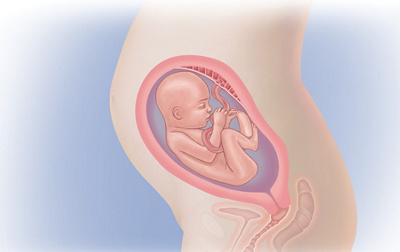
Advanced lung development
Your baby’s lungs have developed further. At this stage of pregnancy and the baby’s lung development, premature babies have a good chance of surviving with little support. Although it is becoming cramped for the child in the uterus, it can continue to turn itself spontaneously until the 36th week of pregnancy.
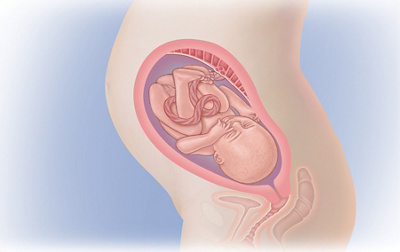
Thick head of hair
Some babies already have a thick head of hair at this time. You now have a lot more fluid in your body than just a few weeks ago. It is normal that some of it collects in your legs and wrists.
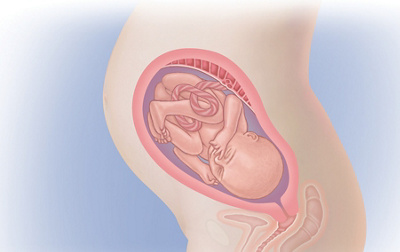
The baby is training its muscles
It is very cramped in the uterus. The child is lying with its head facing down. Your baby is getting ready for life after birth. The protective vermix and the fine lanugo hair on its skin are gradually disappearing.
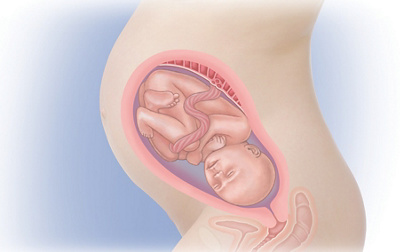
The brain can control important bodily functions
In most cases, your baby is already lying with its head facing down, and will soon be ready to drop into the pelvis. You may now experience increased false labour contractions (Braxton Hicks contractions or practice contractions).
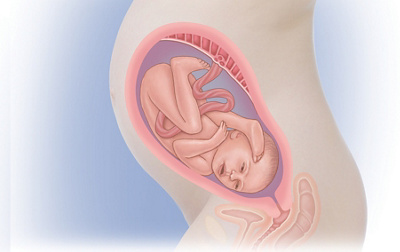
Hiccups teach your baby to breathe
Most babies put on approx.. 150 g to 200 g per week from this time onwards. In this time, your baby has put on considerable weight and now weighs around 1800 g.
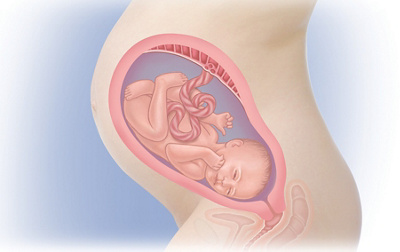
Foetus position
The baby is dropping slowly into the pelvis. 90% of all children already lie with their head facing down at this time. If your child is positioned with its head facing up, this is known as the breech position (pelvic position). In this case, your doctor will probably attempt to turn the baby with what is known as an “external turn” so that it is optimally prepared for the birth.
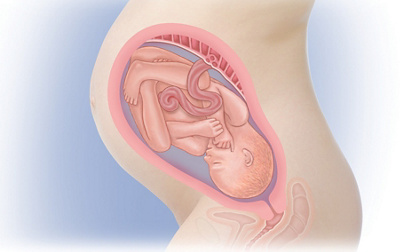
Day and night rhythm
Thanks to your progressively thinner abdominal wall, more light is getting into your stomach. Your baby is able to better differentiate between day and night. Even if it only happens in a few cases, we recommend that you prepare yourself for a premature birth. Pack your suitcase for the hospital.
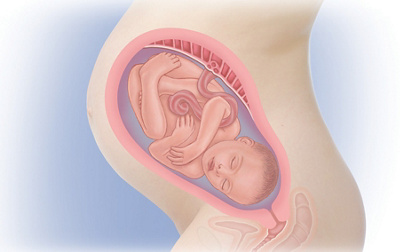
The baby is occupying the entire abdomen
The baby is occupying the entire abdomen and pressing your lungs together. This can cause you to experience shortness of breath. Your baby is assuming the birthing position. This has a positive side effect for you as you will suddenly be able to breathe better and any heartburn will also now abate.
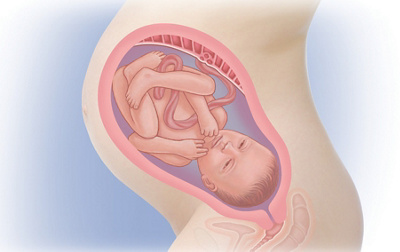
The lungs are now completely developed
The lungs of your baby are now completely developed. The muscles of your pelvic floor are now placed under even more pressure as the baby drops. With stretching exercises and special pelvic floor gymnastics, you can prevent possible bladder weakness after the birth.
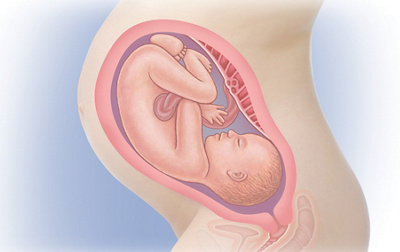
The child is now fully developed
Your child is now fully developed and can be born at any time. Your circulation is working full time and you may experience frequent hot flashes. So this is why you may be suffering from hot flushes more frequently.
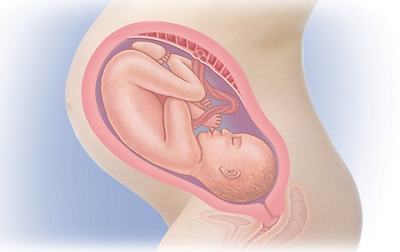
Less foetal movement
You will probably feel your child move less often as it is now almost fixed in its position in the pelvis. You will find it increasingly difficult to get comfortable at this stage of the pregnancy. Your muscles and tendons are under considerable pressure, and your joints are now being prepared for the birth.
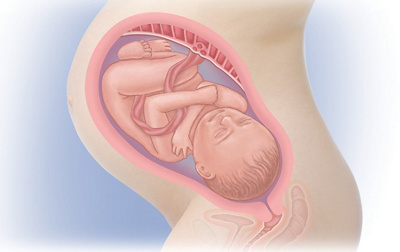
The baby is lying in the birthing position
With crossed arms and bent knees, it has to really curl itself together to even find space to move in your stomach. Have you gathered information on the various pain relief options during childbirth?
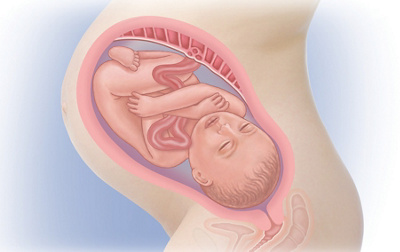
Less amniotic fluid
Many women notice what is known as the "nesting instinct" during this time. This sudden burst of energy encourages you to be active and prepare your surroundings for the arrival of the baby.
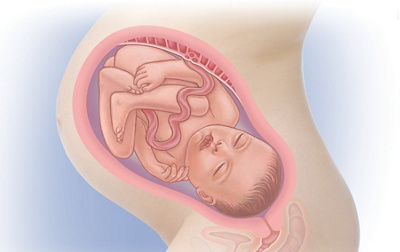
Inducing the contractions
Has your due date already come and gone? That happens in 40% of all pregnancies and is no cause for concern. Your doctor will carry out tests at regular intervals. They will check whether your placenta is working properly and providing your child with sufficient oxygen and nutrients.
